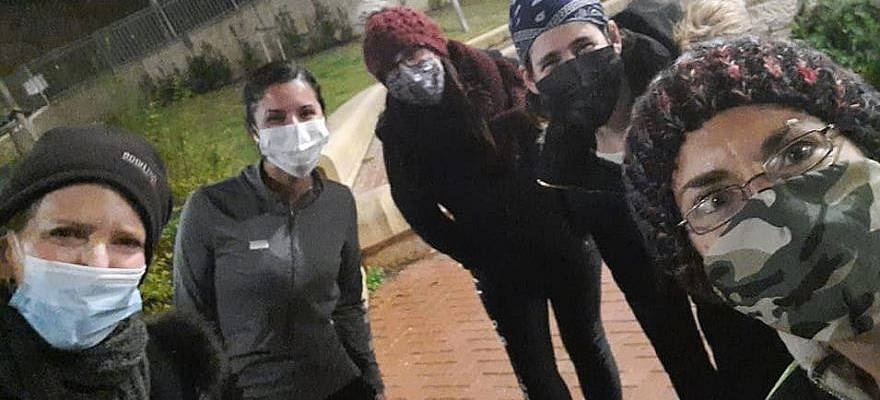The murder of a 52-year-old wife, mother and life coach won’t stop Israelis from their activities.
By Josh Hasten, JNS
Israelis woke up on Monday to the horrible news that the lifeless body of 52-year-old Esther Horgan, a mother of six from the community of Tel Menashe in Samaria, was found at around 2 a.m. in a forest near her home after she went for a power walk on Sunday afternoon and never returned. Her husband, Benjamin, alerted security officials when she didn’t make it back.
On Thursday, JNS reported that Israel’s Shin Bet security service arrested a Palestinian suspect from the Jenin area in connection with the murder. Details of the investigation remain under a gag order.
Police are trying to assess whether the incident was a nationalistically motivated terror attack. The Samaria Regional Council said the murder was without a doubt an act of terror, saying Horgan’s skull had been crushed with police believing the weapon to have been a rock.
Friends and family gathered in Tel Menashe on Tuesday to pay their final respects to Horgan before she was laid to rest.
Ora Oziel, a neighbor and close friend, told JNS that her family and the Horgans shared a Shabbat meal together last Friday night, just 48 hours before Esther went on her ill-fated jog. She said that Esther, who was a life coach, marriage counselor and specialist in Jewish psychology, “was full of life.”
“She loved the beauty of nature and of human beings, both on their inside and outside,” added Oziel.
In an emotional Facebook post, she wrote:
“Esther’s range of interests was immense. Judaism, Zionism, history, psychology, philosophy, yoga, body care—everything was good as long as we could learn. She was a self-taught person and over the years, she amassed a lot of knowledge and thus built the self-confident and fulfilled person that she has become over the years. She knew how to be true to herself. … Go rest in peace and don’t worry; you have given so much love to your children that they carry you in them forever … .”
Oziel also noted that at the funeral, Benjamin Horgan eulogized his wife, saying, “Esther sought to see the beautiful and the good in everything and in all [people],” and thus chose her career path accordingly.
In response to the murder, a group of Israeli women encouraged women and girls from Israel and throughout the world on Wednesday night to go outside and jog/run in Horgan’s memory. Using the hashtag #RunforEsther, a flier sent out on social media by the volunteers said, “Women and girls of the world … run in your community streets. Run for our health, for our healing, for our permanence in our homeland. We are here to stay.”
Israeli Forces Boost Security Presence
Elana Abelow Kronenberg, one of the organizers of the initiative, told JNS that “the absolute bottom line is that we are going to continue running, walking and jogging because we can, and because we have a right to, and because right now, Esther is not able to. But we can run for her.”
She said the point of the initiative was to demonstrate that “we do not live in fear. … It is just so tragic that Esther is no longer here, but women and girls have to continue to run for her. Terrorism will never win.”
Kronenberg said the group wanted to host a larger and more centralized event, but because of the recent surge in COVID-19 cases, a large event was not possible at this time.
Following Horgan’s murder, the Israel Defense Forces announced on Twitter that it was bolstering its security presence throughout Judea and Samaria.
“In accordance with our ongoing situational assessment, we will reinforce troops in Judea and Samaria today to enhance the defense of communities and routes in the region. Our mission to defend Israeli civilians never stops,” read the tweet.
In addition, the Israeli government issued a press release on Tuesday night noting that it had approved a proposal by Prime Minister Benjamin Netanyahu granting NIS 40 million (almost $12.5 million), to strengthen communities in Judea and Samaria.
Some 34.5 million NIS (nearly $11 million) would be allocated to various local municipalities in the region in order to enhance security, while the remaining funds would be earmarked for emergency first-response ambulance stations.
